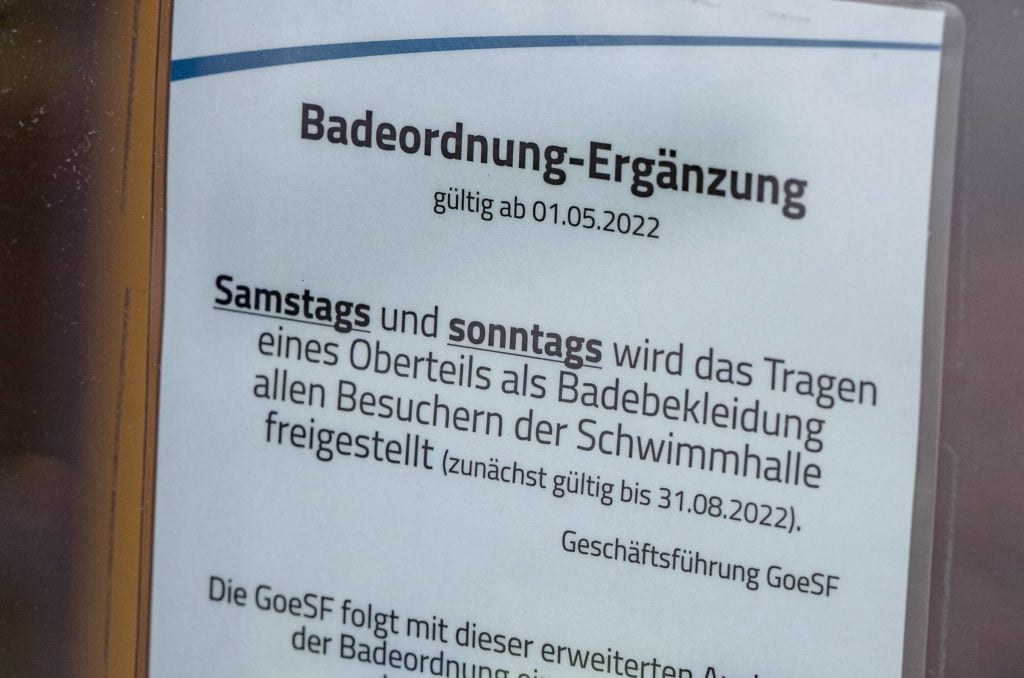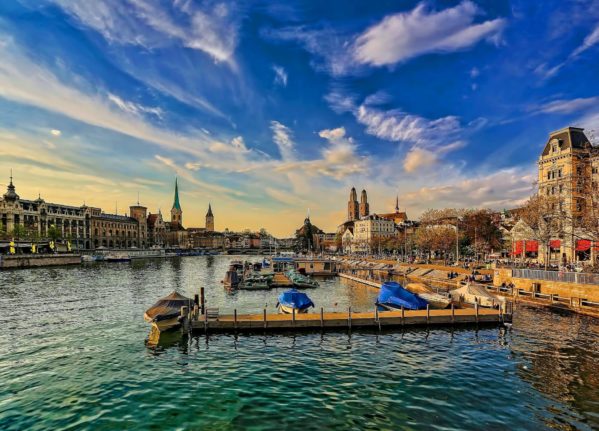What’s happening in Berlin?
Despite some popular beliefs around Germany’s relaxed attitude to nudity, the country’s famous Freikörperkultur (FKK or “free body culture”) can still lead to a confusing mess as to what rules governing nudity actually entail.
Berlin resident Lotte Mies found that out herself when she swam topless in a pool in the Kaulsdorf district.
Mies was wearing a swimming bottom, but no top, and the lifeguard asked her to leave. Pointing out that the pool’s rules only specified that swimmers wear “commercially available swimsuits” – which she had – Mies filed a complaint with Berlin’s office for equal treatment.
The ombudsman sided with her, saying that the regulation to wear “commercially available swimsuits” isn’t gender-specific. Essentially, the office said that if men can go topless at Berlin’s public pools, women and non-binary people can too.
The office acknowledged that the rules could be confusing, and so clarified that the capital will allow topless swimming and sunbathing everywhere in the future. The clarified rule applies to indoor and outdoor pools, beaches, and parks. By making this clarification explicit, the ombudsman also wanted to give staff the confidence that they were enforcing all rules correctly.
But everyone, regardless of gender, still has to wear a “commercially available” swimming bottom when in a Berlin public pool. The point is not that pools cannot add clothing restrictions – merely that it has to apply to everyone equally.
“If men are allowed to do something and women aren’t, that’s not only unfair, that’s sexist,” Mies told Berliner Zeitung in an interview. “After all, I don’t intend to go topless to restaurants or cinemas – but that’s not the case for men either.”
What’s the view elsewhere in Germany?
Despite having a reputation as perhaps Germany’s most liberal city, Berlin is not the first to look at its rules on going topless.
Last summer, a swimming pool in Göttingen threw out someone for refusing to cover up, having told staff that he identifies as male.
The city responded by clarifying that going topless was allowed – regardless of gender – but initially only on weekends, in order to not affect swimming lessons. This does make Berlin the first – and so far only – German city to specifically clarify that going topless in public is allowed all the time.

READ ALSO: German city allows women to bathe topless in pools
Otherwise, the law isn’t always clear. German law doesn’t outright ban nudity, but it does group public nudity with “nuisance” behaviours. So if your public nudity is bothering someone, you can run afoul of the law.
What about FKK?
The exceptions to this are obviously where full nudity is explicitly allowed.
The majority of saunas in Germany require customers to be fully naked for hygiene reasons (although a towel has to be placed down for people to sit or lie on).
There are also many beaches throughout Germany where full FKK – Freikörperkultur – is specifically allowed. These will typically be marked with a sign.
If there isn’t one, assume that you may still run afoul of the rules if you go fully naked there – although these aren’t always enforced. Also, if no one specifically complains, you’re not being a “nuisance” with your nudity – and you’ve thus not committed an offence under German law.
From Sylt to Bavaria though, there are plenty of options for FKK enthusiasts, which you can find on this list for “naked bathing”.
READ ALSO:





 Please whitelist us to continue reading.
Please whitelist us to continue reading.
Member comments